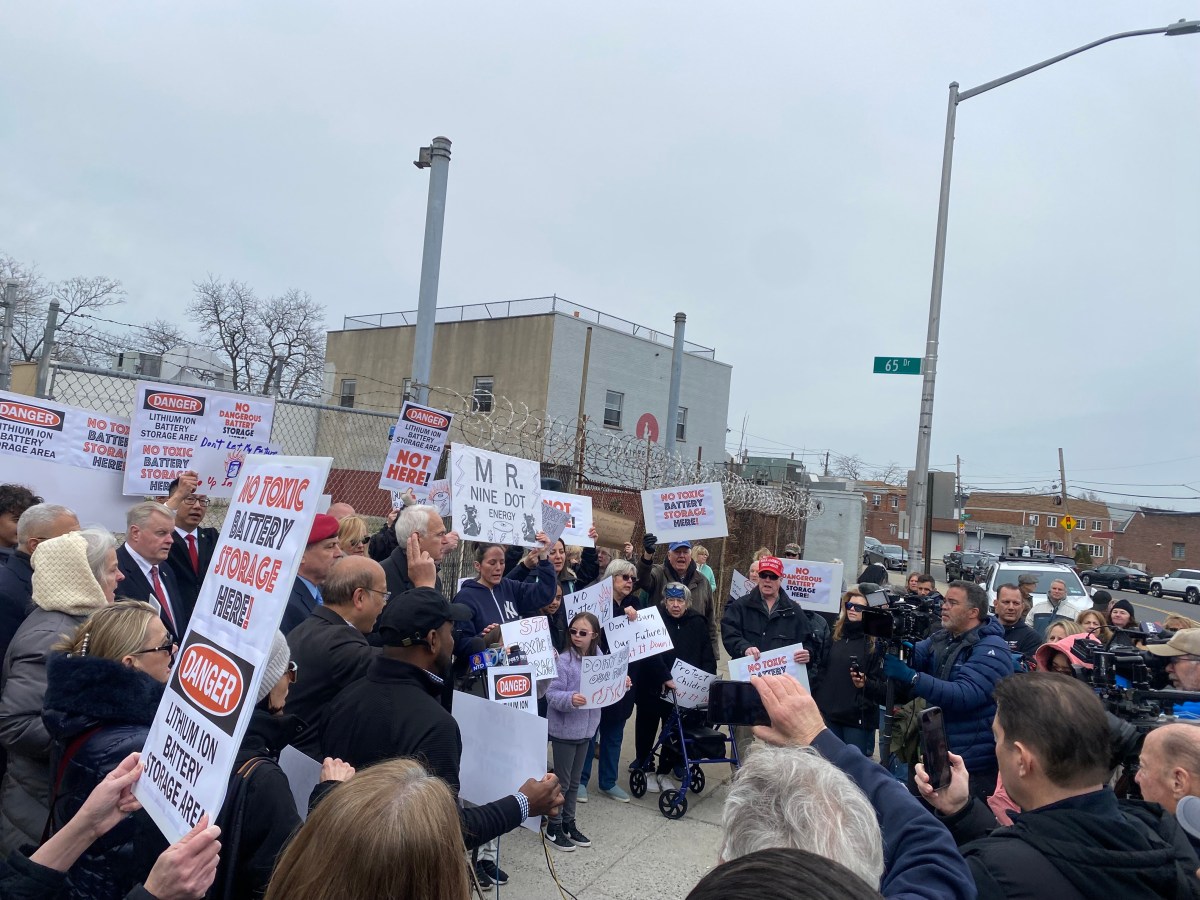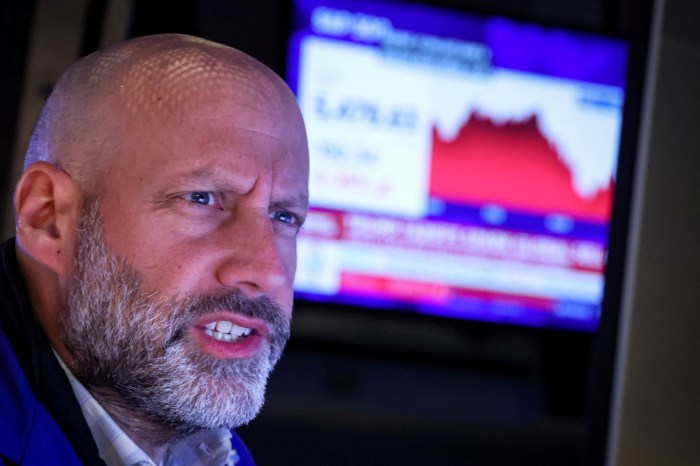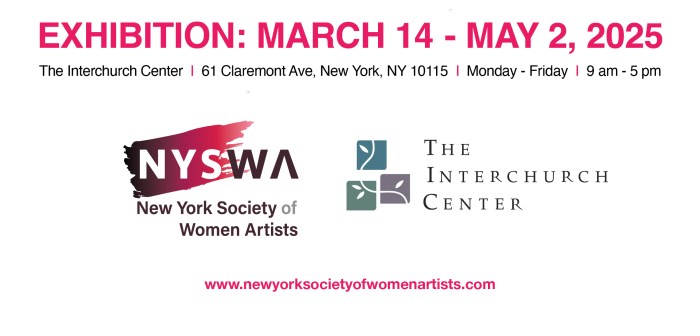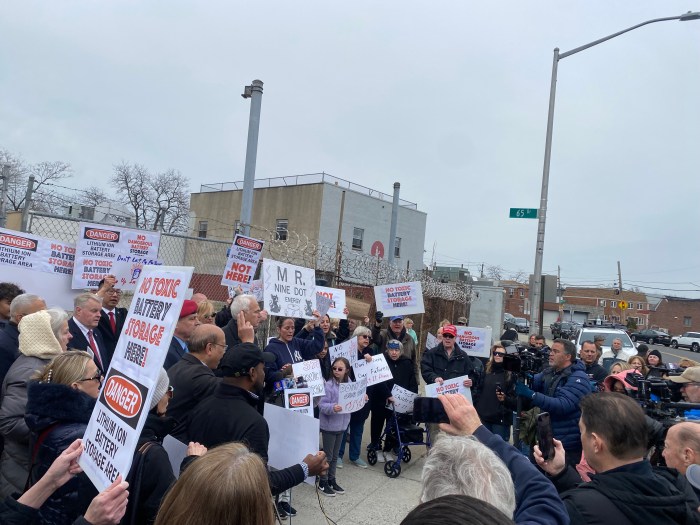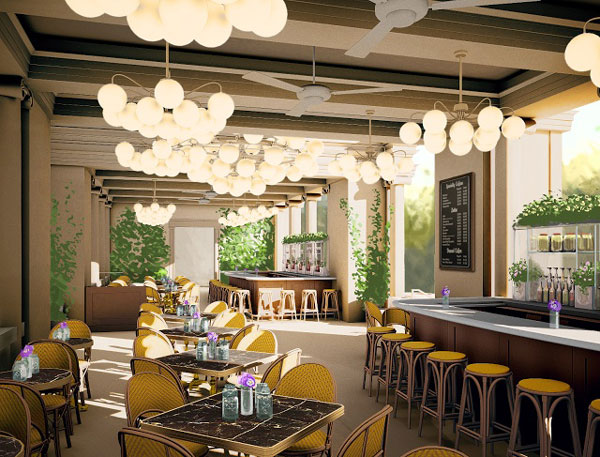
BY SAM SPOKONY | Leaving park advocates and local elected officials dismayed, the state’s highest appeals court ruled last week that the city’s plan to place a restaurant in Union Square Park’s north- end pavilion can go forward.
The ruling will allow the hotly disputed bistro to open as early as mid-April. This follows a decade-long debate over the plan, which was then further delayed by legal battles after the city signed a deal with entrepreneur Simon Oren — the restaurant’s owner — in 2012.
In a statement responding to last Thursday’s ruling, the city’s Law Department called it “a win for the community.”
But members of that community, in assocation with the park advocates, said they are now undertaking yet another effort to kill the plan, by making a direct appeal to Mayor Bill de Blasio.
“We’re not giving up on this, and the fight is far from over,” said Carol Greitzer, speaking in a phone interview the day after the ruling. A former city councilmember, Greitzer was one of the plaintiffs in the lawsuit against the project.
Under the court’s ruling, the city’s Parks Department has the authority to terminate the restaurant’s license at any time. So de Blasio could tell Parks to block the plan once and for all — and that’s exactly what its opponents are hoping he will do.
“We are calling on the mayor to cancel this Bloomberg-era contract and instead return the historic Union Square pavilion to the children and the community,” said Assemblymember Richard Gottfried, in a statement released immediately after the decision. “The area around Union Square Park has the least amount of playground space and the highest concentration of restaurants in the city, and it is therefore terrible public policy to transform municipal parkland into a commercial use. Our parks should not be for sale.”
Geoffrey Croft, of New York City Park Advocates, explained that he and his allies have been prepared to take the fight in this direction ever since it began.
“We always knew there were two options,” he said on Feb. 21, the day after the ruling. “One was legal, the other was political. The fact is that it’s very simple for the mayor to just kill this.”
And de Blasio did, in fact, oppose the restaurant when he served as the city’s public advocate. Last fall, amid the ongoing legal battle, he even sent a letter to the State Liquor Authority on behalf of the restaurant’s opponents, urging denial of its request for a liquor license.
Croft pointed out that this issue will now be a “test” for the mayor, specifically of whether or not he will stand by his previous position on the issue.
“And there’s nothing more progressive than maintaining desperately needed open space for seniors and children who live in that area,” said Croft, referring to the political buzzword found in many of de Blasio’s statements and proposals.
A particularly impassioned and strongly worded appeal to the mayor has come from Mary Brosnahan, president of the Coalition for the Homeless and a longtime E. 17th St. resident.
In a letter sent to de Blasio last Thursday, she defended the pavilion as an essential public space for both residents with children — like herself — and for homeless kids.
“I write today as a 25-year resident of the Union Square community — as well as an advocate for homeless children in NYC — to ask you to please preserve the historic pavilion space so our children, their caregivers and everyone in our community can continue to enjoy this public space for years to come,” Brosnahan wrote.
“Homeless kids need green space perhaps even more than those fortunate enough to have a home,” she continued, later in the letter, “as parks provide essential respite and restore hope to those most in need. I know you agree that turning over public park space to commercial interests will only increase the massive gulf in opportunities between the rich and everyone else in New York City. So, please, stop this plan to give away yet another piece of New York’s heritage to the highest bidder.”
But with all the power now in his hands, de Blasio still has not yet taken a public stance on the issue.
The Mayor’s Office did not respond to request for comment.
The Union Square Community Coalition was the lead plaintiff on the suit and paid the legal fees.
“We just don’t want the pavilion commercialized,” said Edith Charlton, U.S.C.C. chairperson. “And they’re not only taking the pavilion, they’re taking the outside space for tables and chairs.”
The restaurant’s price point is irrelevant, according to Charlton.
“We don’t want high-end food or low-end food,” she said. “We do not want anything commercial in there.”
Under the city’s plan, the pavilion would remain open on its northern and southern side; though there would be a trellis for greenery on the southern side to provide a bit of a barrier with the playground. The restaurant would be seasonal, operating only during the warm weather.
“They’re very happy to give it back to the public in the winter,” Charlton noted. “There’s no heat.”
With reporting
by Lincoln Anderson





